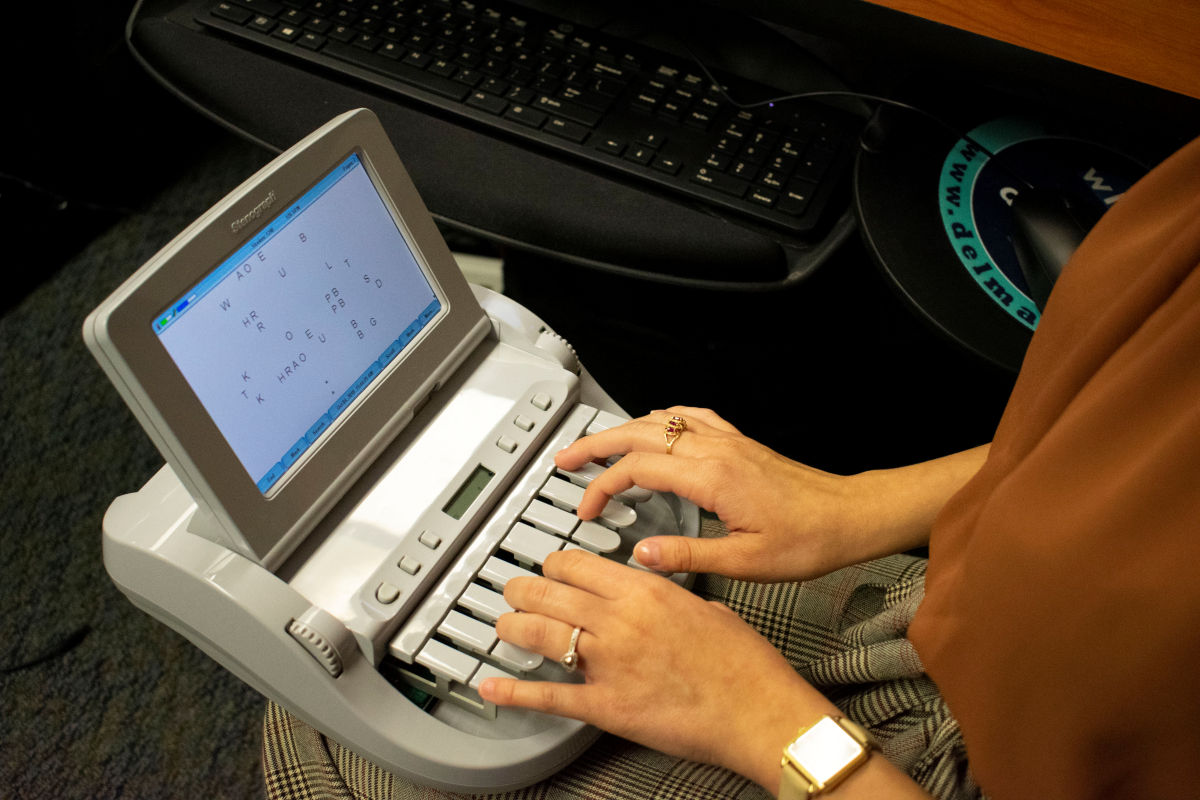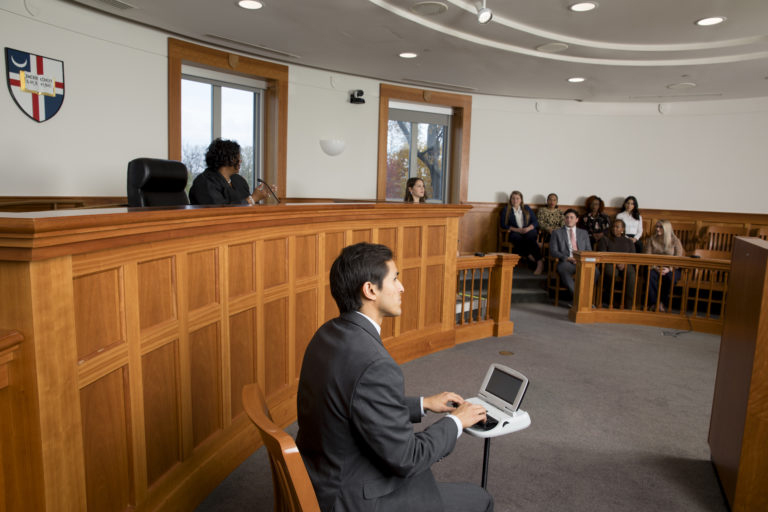How court reporting Professionals Capture Multiple Speakers in High-Pressure Trials
How court reporting Professionals Capture Multiple Speakers in High-Pressure Trials
Blog Article
Recognizing the Important Duty of Court Coverage in Legal Proceedings
Court coverage is frequently ignored, yet it's essential in legal process. You could not recognize just how stenotype reporter assure every word talked is taped properly, influencing choices made by discretionary. Their skills and innovation play a substantial duty in keeping the integrity of lawful records. But just what does the process entail, and just how has it evolved with time? Allow's check out the fundamental features of court reporting and its significance in the legal landscape.
The History of Court Reporting
Court reporting has a rich history that dates back to old civilizations, where scribes used numerous approaches to catch talked words. By the 16th century, contemporary shorthand systems started to take form, enabling court reporters to create accurate records effectively.
Today, court reporters play a significant function in lawful process, making certain that every word spoken in the court is accurately recorded. Recognizing this history highlights the importance of court reporting in preserving a reasonable lawful system.
The Abilities Required for Court Reporters
As a court reporter, you need solid inputting skills to stay up to date with the hectic dialogue of legal procedures. Your ability to listen attentively is equally as crucial, guaranteeing every word is captured properly. Understanding these abilities is crucial to delivering precise and trustworthy transcripts.
Skillful Inputting Capacities

Strong Listening Skills
Strong listening skills are essential for court reporters, as they have to precisely record spoken words in genuine time. This ability assists you differentiate between audio speakers, recognize legal jargon, and follow complicated discussions. Inevitably, solid paying attention skills make you a vital asset in legal process, guaranteeing clearness and accuracy in the court record.
The Technology Behind Court Reporting
In the domain of lawful proceedings, technology plays a necessary function in boosting the accuracy and performance of court coverage. You're likely accustomed to the conventional stenotype machine, however contemporary court reporters now utilize innovative software that integrates with these makers, allowing real-time transcription. This indicates you can have immediate accessibility to the transcript as the proceedings unfold.
Digital audio recording is another technological improvement that's gaining traction. It records every talked word, ensuring absolutely nothing is missed out on. Some reporters utilize voice recognition software program, which can assist streamline the transcription procedure, though it still calls for human oversight for precision.
In addition, cloud-based storage permits easy access and sharing of transcripts, enhancing partnership among lawful groups. By leveraging these modern technologies, stenotype reporter can give high-quality, prompt documents that are crucial for the lawful procedure. Embracing this technology not just improves your understanding yet likewise guarantees integrity in legal documentation.
The Court Reporting Process

As legal process unfold, the court reporting process becomes important in capturing every detail precisely. You'll locate that a court press reporter plays a vital function by transcribing spoken words into created message in real-time. When you step into the courtroom, the press reporter is currently prepared, equipped with specialized tools like stenographic devices and audio recording gadgets.
Throughout the process, the press reporter pays attention diligently, typing out every little thing said, from witness testaments to attorneys' arguments. You might see them stopping briefly sometimes to guarantee clarity or to ask for a repeat if something wasn't clear. After the session, the press reporter assesses the transcript, making necessary edits for readability.
This whole process not just guarantees a complete document but likewise prepares you for future referral throughout appeals or situation testimonials. In the busy setting of a court room, the court reporting process is necessary for maintaining an accurate account of occasions.
The Importance of Accuracy in Transcripts
While a court press reporter's main responsibility is to record spoken words, the accuracy of these transcripts is imperative for the honesty of lawful process. When you're involved in a case, you count on specific paperwork to comprehend the occasions and debates presented. Any kind of errors in transcription can cause misconceptions, false impressions, or even wrongful judgments.
Exact records assure that every information is captured, offering a dependable document for courts, lawyers, and courts. This degree of information is important during allures or when referencing past testimonies. If a records contains inaccuracies, it can threaten the whole legal process, possibly influencing outcomes.
Moreover, exact transcripts copyright the civil liberties of all celebrations included, promoting justness and transparency. Whether you're a lawyer preparing for trial or a witness showing on your testimony, you can rely on that the court press reporter's ability in precision plays a significant find more info function in your situation's success.
The Function of Court Reporters in Different Legal Setups
Stenotype reporter play a necessary duty in various lawful settings, from tests to depositions and lawful hearings. You'll discover that their job assurances every talked word is accurately recorded, which is crucial for the legal procedure. Understanding how their duties differ across these environments can highlight their influence on the justice system.
Court Reporters in Trials
In any type of lawful test, you'll find that court reporters play a vital duty in recording the process with precision and accuracy. Court press reporters need to keep focus and rate, usually utilizing customized equipment to maintain up with fast-paced dialogue. Ultimately, court press reporters aid copyright the justice system, ensuring openness and liability throughout tests.
Depositions and Legal Hearings
Beyond trials, stenotype reporter also play an essential role in depositions and lawful hearings. During these procedures, they record every talked word, making sure a precise record of testaments and discussions. You'll discover that this precision is very important, as depositions commonly function as a foundation for later arguments in court. Court press reporters provide real-time transcription services, allowing attorneys to adhere to along and resolve any type of problems right away. Their work enhances the efficiency of lawful hearings, making it much easier for all celebrations to refer back to the official record. In addition, the transcripts they generate can be substantial for appeals and other lawful processes - court reporting. Basically, court reporters are indispensable in maintaining the integrity and clarity of the legal document in depositions and hearings.
Future Fads in Court Reporting
As innovation proceeds to advance, the future of court reporting promises to be shaped by cutting-edge devices and practices that this link boost accuracy and effectiveness. You'll likely see increased usage of synthetic knowledge and real-time transcription services, improving the reporting procedure. These innovations can assist you gain access to transcripts much faster, which can be crucial for your legal approaches.
Furthermore, incorporating video conferencing and remote reporting will end up being more usual, allowing you to attach with court press reporters from anywhere (court reporting). This adaptability can make depositions and hearings a lot more easily accessible, saving both time and resources
You'll also discover a focus on electronic recordkeeping, which streamlines the storage space and retrieval of transcripts. With cloud-based options, you'll have the ability to share documents firmly and collaborate with your legal group in real-time.
Regularly Asked Questions
What Is the Typical Wage of a Stenotype Reporter?
The average salary of a court reporter varies by location and experience, yet you can expect it to vary from around $50,000 to $80,000 yearly. Numerous elements affect this earnings, consisting of field of expertise and need.
How Do I Become a Certified Stenotype Reporter?
To come to be a qualified court reporter, you'll need to finish a court reporting program, pass an accreditation exam, and gain functional experience. It's critical to stay upgraded on market criteria and continuing education needs.
What Sorts of Instances Do Court Reporters Cover?
Stenotype reporter cover numerous cases, consisting of criminal trials, civil legal actions, depositions, Bonuses and mediation hearings. You'll find them documenting every little thing, ensuring precise records for courts, attorneys, and celebrations involved, catching every word talked in legal settings.
Are Court Reporters Required to Have a Level?
Yes, stenotype reporter usually require a level or certification in court coverage. Many programs use specialized training, guaranteeing you obtain the abilities required for precise transcription and legal documents in different setups.
Can Court Reporters Job From Another Location?

Report this page